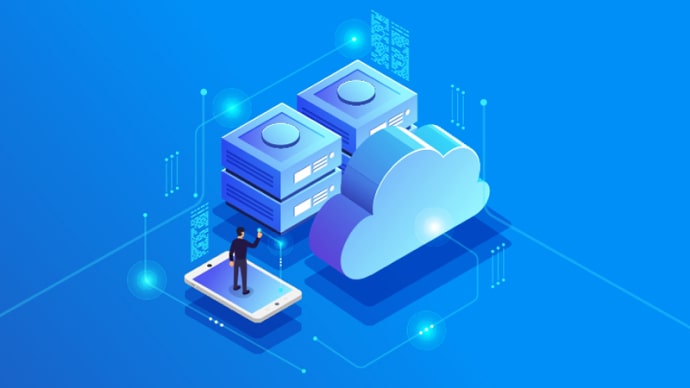
Professional Cloud Network Engineer: Professional Cloud Network Engineer
PDFs and exam guides are not so efficient, right? Prepare for your Google examination with our training course. The Professional Cloud Network Engineer course contains a complete batch of videos that will provide you with profound and thorough knowledge related to Google certification exam. Pass the Google Professional Cloud Network Engineer test with flying colors.

Curriculum for Professional Cloud Network Engineer Certification Video Course
| Name of Video | Time |
|---|---|
 1. Google Cloud : Network Engineer Certification |
12:00 |
 2. Google Cloud Platform Introduction Part 1 |
20:00 |
 3. Google Cloud Platform Introduction Part 2 |
16:00 |
 4. Subscribing for $300 Free Trial |
3:00 |
| Name of Video | Time |
|---|---|
 1. Google Cloud Platform Interfaces |
2:00 |
 2. Cloud Console |
3:00 |
 3. Cloud SDK |
2:00 |
 4. Cloud SDK Installations |
2:00 |
 5. Cloud Shell |
5:00 |
 6. Cloud API |
4:00 |
| Name of Video | Time |
|---|---|
 1. Section 1: Designing, Planning, and Prototyping a GCP Network |
9:00 |
 2. 1.1 Designing the overall network architecture. |
5:00 |
 3. Designing the overall network - Options for HA |
5:00 |
 4. Designing the overall network - Options for Load Balancer |
5:00 |
 5. Designing the overall network - CDN |
3:00 |
 6. Designing the overall network - Project and Network Quota |
3:00 |
 7. Designing the overall network - Hybrid Connection |
3:00 |
 8. Designing the overall network - SAAS PAAS IAAS |
7:00 |
 9. 1.2 Designing a Virtual Private Cloud (VPC) |
17:00 |
 10. 1.2 Designing a Virtual Private Cloud (VPC) - Subnetworks |
8:00 |
 11. 1.2 Designing a Virtual Private Cloud (VPC)-Fiewall & Routes |
11:00 |
 12. 1.2 Designing a Virtual Private Cloud (VPC)-IP Address |
12:00 |
 13. 1.2 Designing a Virtual Private Cloud (VPC)-Other Concepts |
24:00 |
 14. 1.3 Designing a hybrid network |
13:00 |
 15. 1.3 Designing a hybrid network-VPN |
5:00 |
 16. 1.3 Designing a hybrid network-Cloud Router |
6:00 |
 17. 1.3 Designing a hybrid network-Cloud Interconnect |
9:00 |
 18. 1.4 Designing a Container IP Addressing plan for Google Kubernetes Engine |
5:00 |
| Name of Video | Time |
|---|---|
 1. 2.1 Configuring VPCs |
1:00 |
 2. VPC Configure |
12:00 |
 3. VPC Peering |
2:00 |
 4. Configuring VPC - Share VPC |
12:00 |
 5. 2.2 Configuring routing |
13:00 |
 6. 2.3 Configuring and maintaining Google Kubernetes Engine clusters - Part1 |
22:00 |
 7. 2.3 Configuring and maintaining Google Kubernetes Engine clusters - Part 2 |
8:00 |
 8. 2.4 Configuring and managing firewall rules. |
21:00 |
| Name of Video | Time |
|---|---|
 1. 3.1 Configuring load balancing |
19:00 |
 2. 3.1 Configuring load balancing-HTTP LB |
40:00 |
 3. 3.1 Configuring load balancing- SSL, TCP , INTERNAL LB |
13:00 |
 4. 3.2 Configuring Cloud CDN. |
13:00 |
 5. 3.3 Configuring and maintaining Cloud DNS. |
7:00 |
 6. 3.3 Configuring Cloud DNS -Demo |
16:00 |
| Name of Video | Time |
|---|---|
 1. Section 4 - Implementing Hybrid Inter-connectivity |
1:00 |
 2. 4.1 Configuring Interconnect. |
8:00 |
 3. 4.2 Configuring a site-to-site IPsec VPN |
19:00 |
 4. 4.3 Configuring Cloud Router for reliability. |
16:00 |
| Name of Video | Time |
|---|---|
 1. 5.1 Configuring Identity and Access Management (IAM) |
8:00 |
 2. Cloud IAM |
21:00 |
 3. 5.2 Configuring Cloud Armor policies. |
7:00 |
 4. 5.3 Configuring third-party device insertion into VPC using multi-nic (NGFW) |
2:00 |
 5. 5.4 Managing keys for SSH access |
5:00 |
| Name of Video | Time |
|---|---|
 1. 6.1 Logging and monitoring with Stackdriver or GCP Console |
3:00 |
 2. 6.1 Logging and monitoring with Stackdriver or GCP Console - Monitoring |
27:00 |
 3. 6.1 Logging and monitoring with Stackdriver or GCP Console- Logging |
23:00 |
| Name of Video | Time |
|---|---|
 1. Section 7: Optimizing Network Resources |
1:00 |
 2. 7.1 Optimizing traffic flow. |
6:00 |
 3. 7.2 Optimizing for cost and efficiency. |
6:00 |
Google Professional Cloud Network Engineer Exam Dumps, Practice Test Questions
100% Latest & Updated Google Professional Cloud Network Engineer Practice Test Questions, Exam Dumps & Verified Answers!
30 Days Free Updates, Instant Download!
Professional Cloud Network Engineer Premium Bundle

- Premium File: 248 Questions & Answers. Last update: Jan 20, 2026
- Training Course: 57 Video Lectures
- Study Guide: 500 Pages
- Latest Questions
- 100% Accurate Answers
- Fast Exam Updates
Google Professional Cloud Network Engineer Training Course
Want verified and proven knowledge for Professional Cloud Network Engineer? Believe it's easy when you have ExamSnap's Professional Cloud Network Engineer certification video training course by your side which along with our Google Professional Cloud Network Engineer Exam Dumps & Practice Test questions provide a complete solution to pass your exam Read More.
Google Cloud Professional Cloud Network Engineer Certification: Complete Training Course
Achieve Google Cloud Professional Network Engineer Certification with over 15 hours of high-definition video lessons and more than 90 hands-on practical labs.
Course Overview
The Google Cloud Professional Cloud Network Engineer training course is designed to equip IT professionals, cloud architects, and network engineers with the knowledge and practical skills required to design, implement, and manage advanced network solutions within Google Cloud Platform (GCP). This course focuses on providing a deep understanding of cloud networking concepts, enabling participants to confidently handle complex networking challenges in a cloud environment. Through this course, learners will explore the architecture, configuration, and management of virtual networks, firewall rules, load balancers, hybrid cloud connectivity, and network security on GCP.
Participants will also gain experience in troubleshooting and monitoring network performance, preparing them for real-world scenarios and the Professional Cloud Network Engineer certification. By combining theoretical knowledge with hands-on labs, this course ensures that learners are not only familiar with concepts but can also apply them effectively in practice. The curriculum is structured to progressively build expertise, starting with fundamental cloud networking concepts and advancing toward highly specialized tasks like network security management, hybrid cloud implementation, and high-availability network designs.
The course emphasizes best practices for designing scalable, resilient, and secure network architectures, helping professionals optimize network traffic, manage connectivity between on-premises systems and cloud environments, and deploy enterprise-grade solutions that align with organizational goals. Furthermore, the curriculum integrates guidance on configuring network monitoring and logging, ensuring that participants can maintain network performance, detect issues proactively, and comply with security and operational standards.
By the end of the course, learners will possess the expertise to manage VPC networks, implement secure communication channels, configure load balancing, integrate on-premises systems with GCP, and troubleshoot network issues efficiently. The course content also supports candidates preparing for the Professional Cloud Network Engineer exam, providing targeted knowledge and scenario-based exercises that mirror real-world challenges encountered in cloud network management.
What You Will Learn From This Course
Understanding core concepts of cloud networking and architecture within GCP.
Designing and configuring Virtual Private Cloud (VPC) networks with subnets, routes, and IP address management.
Implementing firewall rules to ensure secure access and control over cloud network traffic.
Configuring and managing global and regional load balancing solutions to optimize traffic distribution and application availability.
Connecting on-premises infrastructure with GCP through VPN, Interconnect, and hybrid cloud architectures.
Implementing network security best practices, including IAM policies, DDoS protection, and monitoring strategies.
Utilizing advanced features like Private Google Access, Cloud NAT, Cloud DNS, and global routing for optimized network performance.
Troubleshooting network issues using diagnostic tools and monitoring solutions, ensuring reliability and fault tolerance.
Preparing for the Professional Cloud Network Engineer certification by practicing scenario-based exercises and exam-style questions.
Applying hands-on knowledge to real-world projects, including designing scalable, high-availability network solutions that meet business requirements.
This comprehensive learning ensures participants not only gain theoretical expertise but also the ability to implement and manage complex cloud networks effectively.
Learning Objectives
By completing this course, participants will be able to:
Explain the architecture and components of Google Cloud networking, including VPC, subnets, firewall rules, and routes.
Design scalable and secure network architectures that align with business and technical requirements.
Configure and manage load balancing solutions to ensure high availability and efficient traffic distribution across applications.
Implement secure network communication between on-premises systems and Google Cloud environments using hybrid cloud technologies.
Apply network security best practices, monitor traffic, and troubleshoot potential issues using Google Cloud tools.
Leverage advanced GCP networking features to optimize network performance, connectivity, and fault tolerance.
Demonstrate practical skills in hands-on labs, preparing them for real-world cloud network management.
Develop readiness for the Professional Cloud Network Engineer certification exam through scenario-based exercises.
Understand cost management considerations in cloud networking, ensuring optimal resource utilization and budgeting.
Gain confidence in designing, deploying, and maintaining enterprise-grade cloud network solutions.
Requirements
Participants should have the following to gain maximum benefit from this course:
Basic understanding of networking concepts such as IP addressing, subnets, and routing protocols.
Familiarity with cloud computing principles and general cloud architecture.
Experience working with IT infrastructure, including servers, storage, and network devices.
Access to a Google Cloud Platform account to complete hands-on labs and exercises.
A willingness to engage in scenario-based exercises and apply concepts in practical projects.
Foundational knowledge of Linux or Windows operating systems for network configuration and troubleshooting.
Basic understanding of security principles, including firewalls, access control, and encryption.
Familiarity with command-line interfaces and basic scripting for automation in cloud environments.
While prior GCP experience is not strictly required, familiarity with GCP services will enhance the learning experience and allow participants to progress more rapidly through advanced topics.
Course Description
This Google Cloud Professional Cloud Network Engineer course is a comprehensive program designed to provide in-depth knowledge and hands-on experience in cloud networking. The curriculum covers core concepts, tools, and services within GCP that are essential for building, maintaining, and optimizing cloud network infrastructures. The course begins with foundational topics, ensuring that participants understand cloud networking fundamentals, including VPCs, subnets, routing, and firewall configurations.
As the course progresses, learners explore more advanced topics such as hybrid cloud connectivity, load balancing strategies, network security implementation, and high-availability network design. Practical labs provide participants with opportunities to apply these concepts, building real-world scenarios such as connecting on-premises networks to GCP, deploying global load balancers, and securing network traffic through firewall rules and IAM policies.
The curriculum is structured to support professionals aiming for the Professional Cloud Network Engineer certification, integrating exam-relevant concepts, hands-on exercises, and scenario-based learning. Participants also gain insight into monitoring, logging, and troubleshooting techniques, ensuring that networks are resilient, reliable, and optimized for performance.
By the end of the course, learners are equipped with the technical knowledge, practical skills, and strategic insight required to design, deploy, and manage enterprise-grade cloud network solutions. The course prepares professionals to handle complex networking challenges in modern cloud environments, supporting organizational goals and ensuring secure, efficient, and scalable network operations.
Target Audience
This course is designed for professionals who want to advance their skills in cloud networking and gain expertise in Google Cloud Platform networking services. The target audience includes:
Network engineers seeking to specialize in cloud network design and management.
Cloud architects responsible for planning, implementing, and maintaining cloud network infrastructures.
IT administrators managing hybrid cloud environments or transitioning from on-premises to cloud solutions.
DevOps professionals require knowledge of network security, monitoring, and troubleshooting in cloud environments.
Professionals preparing for the Google Cloud Professional Cloud Network Engineer certification.
IT managers looking to optimize cloud network performance, security, and scalability.
Systems engineers interested in integrating cloud services with existing network architectures.
Security specialists focusing on network protection, access control, and compliance within cloud environments.
Students and professionals seeking hands-on experience in designing and deploying complex cloud network solutions.
Organizations planning to migrate workloads to GCP while ensuring secure, efficient, and resilient network infrastructure.
This course accommodates a wide range of learners, from professionals with networking experience to cloud enthusiasts seeking to build practical skills in Google Cloud networking.
Prerequisites
To ensure a smooth learning experience, participants should meet the following prerequisites:
Understanding of basic networking concepts such as IP addressing, subnets, routing, and network protocols.
Familiarity with cloud computing principles, including resource provisioning, virtualization, and cloud services.
Experience with IT infrastructure management, including servers, storage, and network devices.
Access to a Google Cloud Platform account for hands-on practice and lab exercises.
Basic knowledge of operating systems such as Linux or Windows for network configuration and troubleshooting.
Fundamental understanding of security principles, including firewalls, IAM, and encryption.
Ability to use command-line tools and basic scripting to automate network tasks in GCP.
Willingness to engage in scenario-based learning and apply concepts to real-world projects.
Awareness of organizational requirements for network design, performance, and security standards.
Motivation to prepare for the Professional Cloud Network Engineer certification and apply knowledge in practical scenarios.
Meeting these prerequisites ensures that participants can fully engage with the course material, complete hands-on labs, and build practical skills for managing cloud network environments effectively.
Course Modules/Sections
The Google Cloud Professional Cloud Network Engineer course is structured into multiple modules designed to provide a logical progression from foundational concepts to advanced networking practices within Google Cloud Platform (GCP). Each module builds upon the previous one, ensuring that participants develop a comprehensive understanding of cloud networking while gaining hands-on experience with practical scenarios. The course is divided into several sections, including an introduction to cloud networking, VPC configuration, firewall management, load balancing, hybrid cloud integration, network security, monitoring, and advanced networking strategies.
The first module introduces the architecture and components of Google Cloud networking, emphasizing virtual networks, subnets, routing, and IP management. Participants explore the design and implementation of VPC networks, understanding how to segment and organize network resources efficiently. Subsequent modules focus on firewall rules and security configurations, teaching learners how to control traffic flow, implement security policies, and protect cloud environments from unauthorized access.
A dedicated module on load balancing provides an in-depth study of regional and global load balancers, content delivery networks, and traffic optimization strategies. Learners practice configuring load balancing solutions that ensure high availability, reduced latency, and efficient distribution of workloads across multiple resources. Another module addresses hybrid cloud connectivity, where participants learn to integrate on-premises infrastructure with GCP using VPN, Interconnect, and hybrid routing. This section emphasizes real-world implementation, enabling participants to design secure and scalable hybrid environments that meet business requirements.
Network security and monitoring form a critical component of the course, with modules dedicated to securing VPC networks, implementing IAM policies, protecting against DDoS attacks, and leveraging logging and monitoring tools. Participants gain hands-on experience with Google Cloud services for observing network performance, detecting anomalies, and ensuring compliance with organizational standards. Advanced networking modules cover topics such as private Google access, Cloud NAT, Cloud DNS, and global routing strategies, equipping learners with knowledge to optimize network performance and design fault-tolerant architectures.
The course is structured to encourage both conceptual understanding and practical application, enabling participants to transition smoothly from theory to hands-on practice. Each module incorporates scenario-based exercises, lab activities, and real-world examples, ensuring that learners can apply knowledge immediately in professional contexts. This modular approach also allows participants to revisit specific topics for reinforcement, building confidence and expertise required for managing complex cloud network environments effectively.
Key Topics Covered
The course provides a comprehensive exploration of cloud networking topics, ensuring that participants develop a deep understanding of both foundational and advanced concepts. The curriculum covers the architecture of Google Cloud networking, including virtual networks, subnets, IP address allocation, and routing. Learners explore the design and deployment of VPC networks, understanding how to segment and organize resources for efficient traffic management, scalability, and security.
Firewall rules and access control policies are a central focus, with detailed instruction on configuring and managing traffic rules to protect cloud environments. Participants learn how to implement security best practices, apply IAM policies, and monitor network activity to maintain compliance and prevent unauthorized access. Load balancing strategies are also covered extensively, including global and regional load balancing, traffic distribution, and optimization for high availability and reduced latency.
The course addresses hybrid cloud integration, where learners gain practical skills in connecting on-premises networks with GCP using VPN and Interconnect services. This includes designing hybrid network architectures, implementing secure communication channels, and troubleshooting connectivity issues. Advanced networking topics such as private Google access, Cloud NAT, Cloud DNS, and global routing are included to provide a complete picture of network optimization and performance management in cloud environments.
Additional topics include network monitoring, logging, and diagnostic tools, enabling participants to track network performance, detect issues, and respond to operational challenges. Participants also explore fault tolerance and high-availability strategies, ensuring that network architectures are resilient and capable of handling traffic fluctuations and system failures. Cost management and resource optimization within cloud networking are covered to help learners design efficient, scalable, and economically viable solutions.
Hands-on labs and real-world scenarios complement theoretical instruction, providing participants with practical experience in configuring VPC networks, firewall rules, load balancers, hybrid connectivity, and advanced network features. Each topic is linked to the skills required for the Professional Cloud Network Engineer certification, ensuring that learners gain both exam readiness and the ability to apply knowledge in professional cloud environments.
Teaching Methodology
The teaching methodology of this Google Cloud Professional Cloud Network Engineer course combines theory, hands-on practice, and scenario-based learning to ensure participants gain a well-rounded understanding of cloud networking. The curriculum is designed to provide conceptual clarity while emphasizing practical application through guided labs and exercises. Participants begin with foundational knowledge, gradually progressing to advanced topics such as hybrid cloud integration, network security, and high-availability design.
Instruction is delivered using a combination of lectures, demonstrations, and interactive exercises, allowing learners to observe expert implementations and then replicate them in their own practice environments. Hands-on labs form a critical part of the methodology, providing opportunities to configure VPC networks, firewall rules, load balancers, and hybrid connectivity solutions in realistic scenarios. These labs reinforce theoretical knowledge by allowing participants to apply concepts directly and solve practical challenges.
Scenario-based learning is integrated throughout the course, presenting learners with real-world network challenges that require critical thinking, problem-solving, and practical application of GCP networking concepts. This approach ensures that participants are not only able to memorize configurations and policies but also understand how to adapt solutions to specific organizational requirements. By simulating enterprise-level network environments, learners develop the confidence and skills necessary to manage complex cloud networks effectively.
Instruction also emphasizes collaboration and discussion, encouraging participants to share insights, troubleshoot issues collectively, and explore alternative approaches to network design and management. This collaborative methodology fosters a deeper understanding of networking concepts and allows learners to benefit from diverse perspectives and practical experiences.
Continuous feedback is provided during lab exercises, enabling learners to identify errors, understand best practices, and refine their implementation skills. The combination of lectures, labs, scenario-based exercises, and collaborative discussion ensures a holistic learning experience that prepares participants for both practical application and certification success in the realm of Google Cloud networking.
Assessment & Evaluation
Assessment and evaluation in the Professional Cloud Network Engineer course are designed to measure both conceptual understanding and practical skills. Participants are evaluated through a combination of quizzes, hands-on lab exercises, scenario-based assessments, and practice exams that reflect real-world network challenges. These assessments ensure that learners can apply theoretical knowledge to practical configurations and troubleshoot network issues effectively.
Quizzes are administered at the end of each module to reinforce key concepts, test understanding of network architectures, VPC design, firewall rules, load balancing, hybrid cloud connectivity, and network security. These quizzes provide immediate feedback, allowing participants to identify knowledge gaps and focus on areas requiring additional study.
Hands-on lab exercises form a critical component of the evaluation process, requiring learners to implement VPC networks, configure firewall rules, deploy load balancing solutions, integrate hybrid cloud environments, and monitor network performance. These exercises are designed to simulate real-world scenarios, ensuring participants gain practical experience and develop problem-solving skills that are directly applicable in professional cloud networking environments.
Scenario-based assessments further test participants’ abilities to apply knowledge under realistic conditions. Learners are presented with complex network requirements, security challenges, or traffic optimization problems and must design, implement, and troubleshoot solutions using Google Cloud networking services. These assessments evaluate critical thinking, practical proficiency, and the ability to adapt solutions to meet organizational objectives.
Practice exams aligned with the Professional Cloud Network Engineer certification objectives provide a final evaluation, helping learners measure readiness for the official exam. The practice exams incorporate multiple-choice questions, case studies, and configuration scenarios, ensuring that participants can demonstrate mastery of cloud networking concepts and practical skills.
Continuous evaluation throughout the course, combined with detailed feedback, ensures that learners progress steadily, develop confidence, and gain the technical expertise required to manage complex cloud networks. Assessment and evaluation methods are designed to support both learning and certification preparation, providing a comprehensive approach to professional development in Google Cloud networking.
Benefits of the Course
The Google Cloud Professional Cloud Network Engineer course offers numerous benefits to IT professionals, network engineers, and cloud architects seeking to advance their expertise in cloud networking. One of the primary advantages is the comprehensive understanding participants gain of Google Cloud networking services, including VPC networks, firewall configurations, load balancing solutions, hybrid cloud integration, and network security. This knowledge empowers professionals to design, implement, and maintain robust, scalable, and secure cloud network architectures that meet organizational needs.
Another key benefit is the hands-on experience provided through practical labs and scenario-based exercises. Learners develop the ability to configure networks, deploy firewall rules, optimize traffic routing, and troubleshoot connectivity issues within realistic cloud environments. This practical experience ensures that participants are not only familiar with theoretical concepts but can also apply them effectively in professional settings.
The course also prepares participants for the Google Cloud Professional Cloud Network Engineer certification, offering a structured learning path aligned with exam objectives. Certification serves as an industry-recognized validation of skills, enhancing career prospects, and establishing credibility in cloud networking. Organizations hiring certified professionals benefit from their ability to manage cloud networks efficiently, ensure security compliance, and optimize network performance across hybrid and multi-cloud environments.
Additional benefits include gaining familiarity with advanced GCP networking features such as Cloud NAT, Cloud DNS, Private Google Access, and global routing strategies. Participants also learn monitoring and logging techniques to track network performance, detect issues proactively, and implement fault-tolerant architectures. These skills contribute to operational efficiency, cost optimization, and improved business continuity. Furthermore, learners develop critical problem-solving abilities, analytical thinking, and technical confidence, enabling them to manage complex networking scenarios, adapt to evolving cloud technologies, and drive digital transformation initiatives within their organizations.
Overall, the course delivers a blend of theoretical knowledge, practical expertise, and industry recognition, equipping participants with the competencies required to succeed as cloud network professionals in modern enterprise environments.
Course Duration
The Google Cloud Professional Cloud Network Engineer course is designed to provide an in-depth learning experience over a structured period, ensuring participants can thoroughly explore each aspect of cloud networking. Typically, the course spans several weeks, with an estimated duration of 8 to 12 weeks, depending on the learning pace and depth of engagement with hands-on labs and scenario-based exercises. Each week is carefully structured to balance theoretical instruction, practical exercises, and self-paced learning, allowing participants to absorb concepts effectively while applying them in real-world scenarios.
Sessions are organized to progressively build skills, beginning with fundamental cloud networking principles such as virtual network architecture, subnets, IP address allocation, and routing. Subsequent weeks focus on firewall configuration, load balancing, hybrid cloud integration, and network security practices, gradually introducing more advanced topics such as high-availability design, monitoring, and global traffic management. This progressive structure ensures that learners develop a solid foundation before tackling complex configurations and optimization strategies.
Hands-on labs and exercises are integrated throughout the course, with sufficient time allocated to reinforce learning through practice. Participants are encouraged to revisit previous modules for review, engage in scenario-based projects, and complete assessments aligned with the Professional Cloud Network Engineer certification objectives. Flexible scheduling allows learners to balance professional commitments while progressing through the course, making it suitable for working professionals, IT teams, and cloud enthusiasts seeking structured, in-depth training.
The course duration also includes dedicated time for preparation for certification exams, with practice assessments, quizzes, and lab exercises designed to simulate real-world challenges. By the end of the course, participants are expected to have mastered both the conceptual and practical aspects of GCP networking, ensuring readiness for professional application and industry recognition through certification.
Tools & Resources Required
To successfully complete the Google Cloud Professional Cloud Network Engineer course, participants need access to a set of essential tools and resources that facilitate both learning and hands-on practice. At the core of the course is access to a Google Cloud Platform account, which allows learners to create, configure, and manage VPC networks, firewall rules, load balancers, and hybrid connectivity solutions. A personal or organizational GCP account ensures that participants can work on real-world configurations, perform network troubleshooting, and experiment with advanced features without restrictions.
In addition to the GCP account, participants should have access to a computer or laptop with a stable internet connection, capable of running web-based GCP tools, cloud consoles, and management interfaces. Command-line tools such as Google Cloud SDK and gcloud CLI are necessary for executing configuration commands, automating tasks, and monitoring network environments efficiently. Familiarity with these tools enhances the hands-on learning experience and enables participants to implement best practices in real-world cloud networks.
Additional resources include reference documentation, online guides, and tutorial materials provided by Google Cloud, which cover concepts such as VPC configuration, firewall management, hybrid cloud integration, load balancing, and network security. These resources support both self-paced study and guided instruction, offering detailed explanations, examples, and step-by-step procedures for network setup and optimization.
Collaboration and communication tools, such as forums, chat groups, or learning management systems, are also valuable for connecting with instructors and peers. They facilitate discussion, troubleshooting, and sharing of practical insights, ensuring that learners benefit from collective knowledge and experience. Optional software and tools such as network monitoring dashboards, visualization tools, and automation scripts can further enhance the learning process, providing participants with deeper insight into traffic management, performance optimization, and fault detection in cloud networks.
With the combination of Google Cloud access, command-line tools, reference materials, and collaborative platforms, participants have all the necessary resources to engage fully with the course content, practice hands-on labs, complete assessments, and develop proficiency in managing cloud networking environments effectively.
Advanced Network Architecture
Participants in the course gain expertise in designing advanced network architectures that meet enterprise requirements for scalability, reliability, and security. Advanced network architecture involves structuring VPCs, subnets, firewall rules, and routing configurations to optimize traffic flow, enhance performance, and reduce latency. Learners explore the principles of network segmentation, redundancy, and failover strategies to ensure high availability and fault tolerance.
Designing multi-region VPC networks allows organizations to distribute workloads efficiently, ensuring that applications remain available during regional outages or high-traffic periods. Participants practice configuring private and public subnets, controlling access through firewall rules, and integrating network resources with on-premises environments. The course also emphasizes the use of hybrid cloud models, connecting legacy infrastructure with Google Cloud to maintain seamless operations while leveraging cloud scalability.
Load balancing strategies are integral to advanced network design, ensuring even traffic distribution, reduced latency, and enhanced user experience. Participants gain hands-on experience with global and regional load balancers, understanding how to route traffic efficiently across multiple instances or regions. Integration with Cloud CDN and caching solutions further optimizes network performance, reducing response times for end-users.
Security considerations are embedded into the architecture, including network segmentation, IAM policies, encryption, and DDoS protection. Learners practice implementing secure communication channels between services, monitoring traffic for anomalies, and applying best practices for compliance with organizational and regulatory standards. High-availability design principles, including multi-zone deployments and automated failover, prepare participants to handle large-scale enterprise networks and mission-critical workloads effectively.
Monitoring and Troubleshooting
An essential component of the course is learning how to monitor, troubleshoot, and optimize cloud network environments. Participants gain proficiency with Google Cloud monitoring tools, logging services, and diagnostic utilities, which are critical for maintaining performance, detecting issues, and ensuring operational continuity. Monitoring practices include tracking network traffic, resource utilization, latency, and throughput across VPC networks, firewall rules, load balancers, and hybrid connections.
Troubleshooting exercises allow learners to identify misconfigurations, connectivity issues, and performance bottlenecks. Participants practice using network diagnostic commands, cloud logging dashboards, and monitoring alerts to resolve problems proactively. The course emphasizes scenario-based troubleshooting, replicating real-world network incidents that require rapid analysis and corrective action.
Monitoring and troubleshooting skills are also applied to network security, ensuring that firewall rules, IAM policies, and hybrid connections maintain compliance and protect against unauthorized access. Participants learn how to analyze logs, detect anomalies, and implement corrective measures to maintain network integrity and reliability. Integration with cloud automation tools allows learners to implement automated monitoring, alerting, and remediation processes, reducing manual intervention and improving operational efficiency.
Through continuous practice in monitoring and troubleshooting, participants develop a strong capability to manage cloud networks, optimize performance, and respond to operational challenges effectively, ensuring that organizational objectives for availability, security, and efficiency are consistently met.
Hands-On Labs and Practical Exercises
Hands-on labs and practical exercises form a central part of the course, providing participants with opportunities to apply theoretical knowledge to real-world networking scenarios. Labs cover VPC creation, subnet allocation, firewall rule configuration, load balancing setup, hybrid cloud integration, and network security implementation. Participants also practice traffic routing, network monitoring, and troubleshooting exercises that simulate enterprise-level environments.
Scenario-based exercises challenge learners to design, implement, and manage networks that meet specific organizational requirements. For example, participants might be asked to connect an on-premises data center with GCP using VPN, configure a multi-region load balancer for high availability, and implement firewall rules that restrict access based on security policies. These exercises develop critical thinking, problem-solving, and technical proficiency, ensuring learners can handle real-world cloud networking challenges.
Additional labs focus on advanced network features such as Cloud NAT, Cloud DNS, Private Google Access, and global routing configurations. Participants gain insight into optimizing network performance, ensuring scalability, and maintaining fault tolerance across cloud environments. Each exercise is designed to reinforce learning objectives, prepare participants for the Professional Cloud Network Engineer certification, and build confidence in applying cloud networking skills in professional scenarios.
Career Opportunities
Completing the Google Cloud Professional Cloud Network Engineer course opens a wide range of career opportunities for IT professionals, network engineers, cloud architects, and systems administrators seeking to specialize in cloud networking. The demand for cloud network experts continues to grow as organizations increasingly migrate workloads to cloud environments and adopt hybrid and multi-cloud architectures. Professionals equipped with the skills to design, implement, and manage secure, scalable, and high-performance cloud networks are in high demand across industries including finance, healthcare, e-commerce, technology, and government.
Graduates of this course can pursue roles such as Cloud Network Engineer, Cloud Solutions Architect, Network Security Engineer, DevOps Engineer, and Systems Administrator with a focus on networking. In these positions, professionals are responsible for managing virtual networks, configuring firewall rules, implementing load balancing, ensuring secure hybrid cloud connectivity, and optimizing network performance. The course also provides the foundation for specialized roles in network security, where experts protect cloud environments against unauthorized access, DDoS attacks, and other cyber threats while maintaining compliance with industry standards.
Organizations value professionals who can bridge the gap between on-premises infrastructure and cloud networks, making the expertise in hybrid cloud integration highly sought after. Cloud Network Engineers with certification demonstrate the ability to handle complex networking tasks, troubleshoot connectivity issues, monitor network performance, and implement fault-tolerant solutions that support mission-critical applications. These skills translate to higher employability, competitive salaries, and opportunities for career advancement in cloud technology leadership roles.
In addition to technical positions, completing this course positions participants for consulting opportunities, project-based engagements, and cloud strategy roles. Professionals can work with enterprises to design and implement cloud network architectures, optimize existing infrastructures, and ensure secure and efficient operations across distributed environments. Freelance or contract opportunities also exist for certified cloud network engineers who can provide expertise on migration projects, network security audits, and cloud optimization initiatives.
Career growth for cloud network professionals is further supported by the ongoing evolution of cloud technologies. As Google Cloud introduces new networking services, tools, and security features, certified engineers with a strong foundation in cloud networking are well-positioned to adopt emerging technologies, drive innovation, and lead digital transformation initiatives within their organizations. The combination of technical expertise, hands-on experience, and industry-recognized certification establishes a solid foundation for long-term career advancement in the ever-expanding field of cloud computing.
Enroll Today
Enrolling in the Google Cloud Professional Cloud Network Engineer course is the first step toward mastering cloud networking and advancing your career in the technology industry. The course is designed to accommodate both working professionals and students, offering a structured learning path that combines theory, hands-on labs, scenario-based exercises, and assessment tools to ensure comprehensive skill development. By enrolling, participants gain immediate access to curated content, guided instruction, and practical exercises that mirror real-world cloud networking challenges.
Enrollment provides access to Google Cloud Platform resources, including tools for VPC configuration, firewall management, load balancing, hybrid connectivity, network security, monitoring, and advanced networking features. Participants are guided through each module with expert instruction, ensuring that foundational concepts are fully understood before progressing to more advanced topics. Hands-on labs allow learners to apply their knowledge immediately, reinforcing learning objectives and building practical expertise in a controlled environment.
The course also includes structured assessments, quizzes, and practice exams aligned with the Professional Cloud Network Engineer certification, providing participants with a clear path to achieving industry recognition. By enrolling, learners can track their progress, identify knowledge gaps, and receive feedback to improve their understanding and application of cloud networking principles. Scenario-based exercises further enhance problem-solving and critical thinking skills, preparing participants to handle real-world network management tasks effectively.
Additional benefits of enrollment include access to learning communities, discussion forums, and collaboration tools, allowing participants to connect with instructors and peers. Sharing insights, troubleshooting challenges, and exploring alternative network design strategies contribute to a richer learning experience and deeper understanding of cloud networking concepts. Resources such as documentation, tutorials, and reference guides complement the learning process, ensuring that participants can continue developing skills beyond the course duration.
Enrolling today not only provides the knowledge and tools required to excel as a Google Cloud Network Engineer but also positions participants for career advancement and long-term success. The structured curriculum, hands-on practice, expert guidance, and certification preparation collectively ensure that learners are equipped to design, deploy, and manage secure, scalable, and high-performing cloud networks in professional environments. Immediate enrollment allows participants to begin their journey toward mastering Google Cloud networking, achieving certification, and seizing career opportunities in the growing cloud technology landscape.
Prepared by Top Experts, the top IT Trainers ensure that when it comes to your IT exam prep and you can count on ExamSnap Professional Cloud Network Engineer certification video training course that goes in line with the corresponding Google Professional Cloud Network Engineer exam dumps, study guide, and practice test questions & answers.
Purchase Individually




Google Training Courses













Only Registered Members can View Training Courses
Please fill out your email address below in order to view Training Courses. Registration is Free and Easy, You Simply need to provide an email address.
- Trusted by 1.2M IT Certification Candidates Every Month
- Hundreds Hours of Videos
- Instant download After Registration






